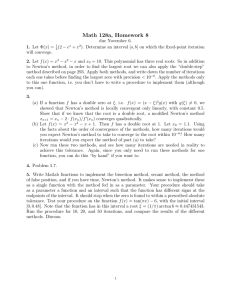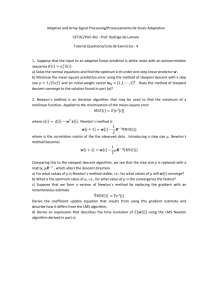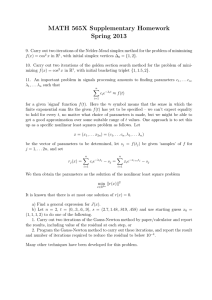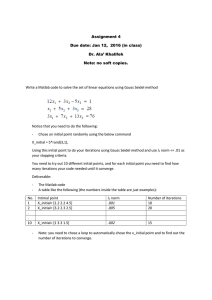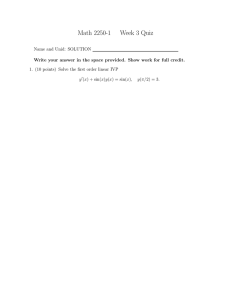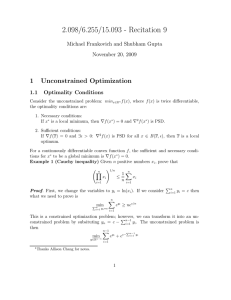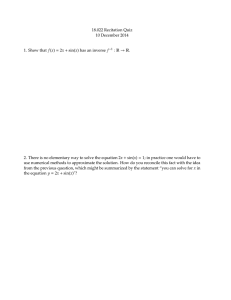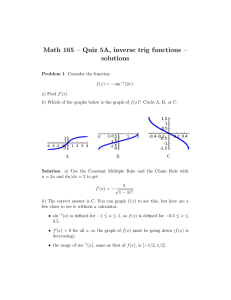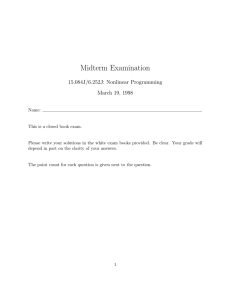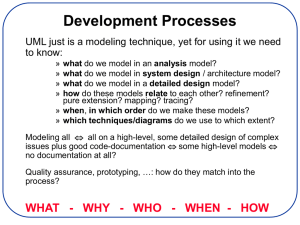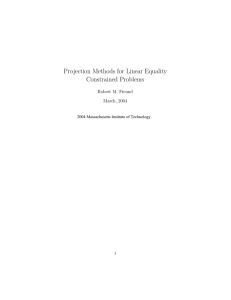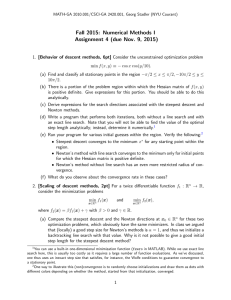Problem 4.20 Consider the system of equations x, y y
advertisement
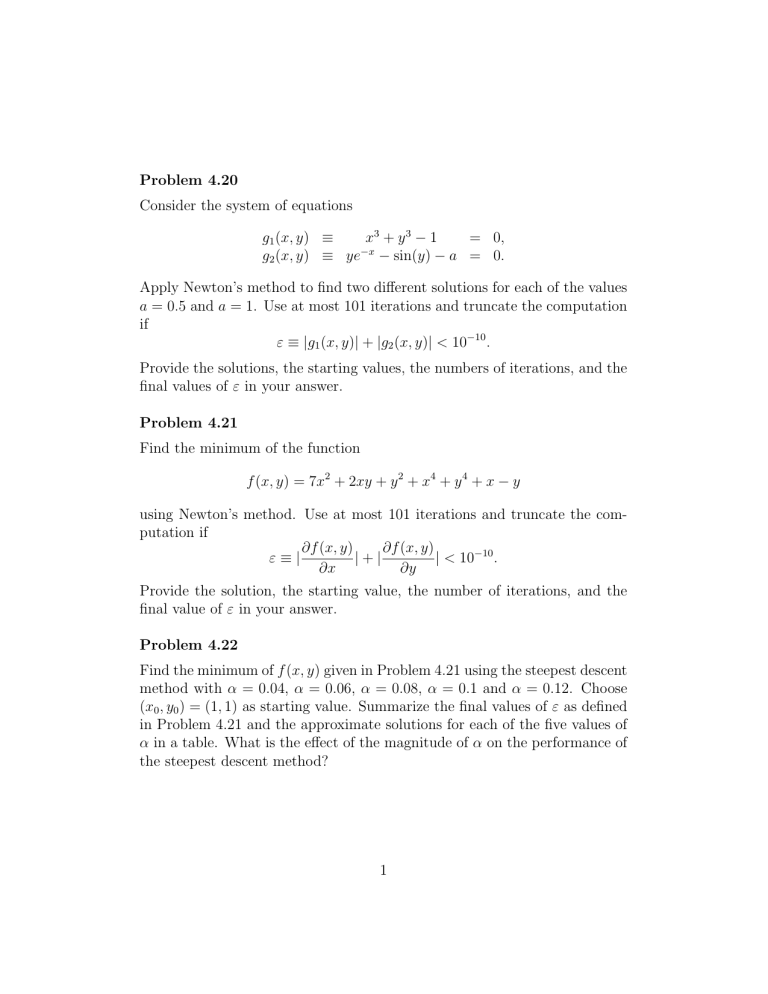
Problem 4.20 Consider the system of equations g1 (x, y) ≡ x3 + y 3 − 1 = 0, −x g2 (x, y) ≡ ye − sin(y) − a = 0. Apply Newton’s method to find two different solutions for each of the values a = 0.5 and a = 1. Use at most 101 iterations and truncate the computation if ε ≡ |g1 (x, y)| + |g2 (x, y)| < 10−10 . Provide the solutions, the starting values, the numbers of iterations, and the final values of ε in your answer. Problem 4.21 Find the minimum of the function f (x, y) = 7x2 + 2xy + y 2 + x4 + y 4 + x − y using Newton’s method. Use at most 101 iterations and truncate the computation if ∂f (x, y) ∂f (x, y) ε≡| |+| | < 10−10 . ∂x ∂y Provide the solution, the starting value, the number of iterations, and the final value of ε in your answer. Problem 4.22 Find the minimum of f (x, y) given in Problem 4.21 using the steepest descent method with α = 0.04, α = 0.06, α = 0.08, α = 0.1 and α = 0.12. Choose (x0 , y0 ) = (1, 1) as starting value. Summarize the final values of ε as defined in Problem 4.21 and the approximate solutions for each of the five values of α in a table. What is the effect of the magnitude of α on the performance of the steepest descent method? 1 You can use you favorite optimization software (for example Matlab’s fminunc for unconstrained problems and fmincon for constrained problems, or Excel) to solve Problems 4.23-25. Problem 4.23 Find the (unconstrained) minimum of 2 f (x, y, z) = x6 + x2 ∗ y 2 + y 4 + z 4 + e−z sin(x + y). Problem 4.24 Find the minimum and maximum of f (x, y) = x3 + y 2 − xy subject to x2 + 4y 2 ≤ 2. Problem 4.25 Find the minimum of f (x, y, z) = sin(x + y) + cos(y + z) − e−x subject to (a) x2 + y 2 = 1, z 2 ≤ 1, (b) constraints as in (a) and in addition x ≥ 0, y ≤ 0. 2 x2 ≥ y 2 . 2
